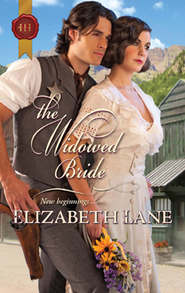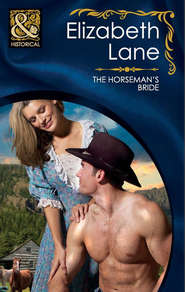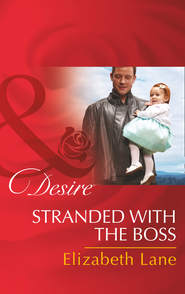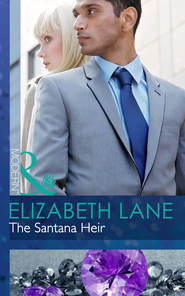По всем вопросам обращайтесь на: info@litportal.ru
(©) 2003-2025.
✖
Apache Fire
Настройки чтения
Размер шрифта
Высота строк
Поля
“I’ll make it.” He gained the first step, then the second, biting back curses. She could feel his trembling heat along her side; she could feel the labored pounding of his heart.
Something flashed through Rose’s memory—the image of a wounded coyote whelp she had once found in the brush, half-dead, its eyes still glinting with a desperate defiance. Hungering for something to nurture, Rose had begged John to let her take the wretched creature home and care for it, but he had drawn his pistol and shot it before her horrified eyes. “You’ve got no sense at all, woman,” he’d said. “A coyote’s a wild animal. First chance a varmint like that gets, it’ll turn on you for sure.”
A wild animal
The man at her side had that same hunted air about him, and no matter how he might be suffering or what he might tell her, Rose knew she could not afford to trust him.
They had gained the porch. The stranger was reeling like a drunkard. It was all Rose could do to keep him upright. All the same, she forced herself to stop short of the door.
“I’m not taking you under my roof until I know,” she declared, bracing her weight against his ribs. “Who are you? What did you want with my husband?”
“Latigo.” He spoke with excruciating effort. “I knew your husband from the Apache wars. He said if I ever needed help…”
The words trailed off as his knees buckled, then his body collapsed in Rose’s arms. She tried to hold him, but his weight was too much for her. His blood left a streak of crimson down the skirt of her dark blue wrapper as he slid to the porch, shuddered and lay still.
Panic shrilled alarms in Rose’s head as she groped for his pulse. Reason argued that she and the baby would be safer if he died, but when her fingertips, searching along his jugular, found a weak but steady flutter, she broke into a sweat of relief. He was alive, but his life was trickling away with every heartbeat. There was no time to lose.
Urgency, now, drove her to fling open the door and seize the stranger’s feet, one booted, one covered only in a half-disintegrated dark woolen sock. As she dragged him along the tiles toward the kitchen, Rose prayed silently that she would know what to do. She had nursed the cuts and sprains of the vaqueros and cared for John during those last terrible months when he lay barely aware of her, but she was no doctor.
He groaned as she turned his body to slide it across the threshold into the kitchen where she kept water and medical supplies. “I know it hurts,” she muttered, “but I have to get you in here where I can work on you.” Rose shoved back the table to clear more space, then maneuvered him into position. She would have to dress his wound on the floor. Unless he could get up by himself, there was no way for her to lift him onto anything higher.
Water. Yes, he would need all the fluids she could force down him. Rose darted to the counter and filled a pottery cup from the tall pewter pitcher. Moonlight etched ghostly windowpane squares across the tile as she crossed the kitchen and dropped to her knees beside him.
The stranger—Latigo—moaned as she lifted his head and cradled it in her lap. His face was in shadow, so obscuring his features that she had to grope for his mouth. His skin was as smooth as new leather beneath her fingertips. An unexpected tenderness surged through her as she tipped the cup and pressed it to his cracked lips. “Drink,” she murmured. “Please—you’ve lost so much blood.”
At first he did not respond. The water filled his mouth until Rose feared she would drown him. It trickled out of one corner to run down her sleeve as she tilted his head to keep him from choking. Please, she begged silently. Please.
He sputtered weakly. Then she felt the ripple of his throat as he began to swallow. “Yes,” she whispered, tipping the cup higher to give him the last drops. “Yes, that’s it, drink it all.”
She withdrew the cup, then hesitated, wondering whether she should get him more water. No, she swiftly concluded, too much at one time might make him sick, and she could wait no longer to stop the bleeding.
“Latigo, can you hear me?”
He made no sound.
“Latigo!” Sick with dread, she seized his shoulder and shook it. Relief swept through her as he moaned incoherently.
“I’ve got to clean out your wound. It’s going to hurt Do you want some whiskey?”
Again he did not answer, and Rose realized she was wasting precious time. Leaving him where he lay, she scrambled to her feet and strode to the cupboard, where she rummaged for matches to light the lamp that Esperanza kept on the counter. By its flaring yellow light she filled a basin with water, then retrieved her medical kit, some clean rags and a bottle of John’s rye whiskey from the pantry. These she placed on the shadowed floor next to Latigo’s unconscious body. Then she rushed back to fetch the lamp from the counter.
Light danced eerily off the open-beamed ceiling as she picked up the lamp. It glistened on hanging copper pots and flickered on strings of garlic and dark red chilies as she hurried across the kitchen. The tiles were smooth and cold beneath her bare feet.
Latigo had not moved. He lay where she had left him, the agonized hiss of his breathing his only sign of life. Light pooled around his lanky frame as Rose bent down to set the lamp on the floor. It flooded his face, casting his features into stark relief—the tawny skin, the straight nose and sharp, high cheekbones, the long, square jaw, the broad forehead, crowned by hair as black as the wing of a raven.
Rose’s flesh had gone cold. Panic surged through her body, propelled by memories so vivid and terrible that she could not fight them back. The smoke. The blood. The savage, painted faces.
She closed her eyes, battling instincts that threatened to send her bolting out of the kitchen. The man was helpless, she reminded herself. He would die without her aid. Maybe he would die anyway, but she had no moral choice except to try to help him.
Rose willed her eyes to open, willed herself to look down at him as she reached for the basin and a clean cloth. She would perform her Christian duty, she resolved. But no charity on her part could wipe out the horror of the past.
And nothing could alter the fact that this dark stranger, this man who called himself Latigo, wore the face of an Apache.
Chapter Two (#ulink_ba75f27f-7857-5e78-993a-beaa8b64513b)
He was running free, his boyish legs bounding along the rocky crest of a sage-swept ridge. The dawn wind whispered in his long, black hair. The soles of his moccasins skimmed the path as he mounted higher and higher, pursuing some precious golden thing that glimmered just beyond sight and reach. “Seek, boy,” the aging di-yin had told him. “Climb high. Only then will you find the path to who you are and where you must stand.”
Latigo awoke to thin gray light as the dream faded. His body jerked to sudden awareness. His eyelids fluttered open. Then, with a caution born of dangerous years, they swiftly closed to narrow slits, allowing him to size up his situation before moving.
His shoulder burned like hellfire, but the tightness of new wrappings told him his wound had been dressed. However badly or well remained to be seen. Someone had put a clean shirt on him that scratched his neck and smelled of laundry soap. That was something a woman would do, he reasoned foggily.
A woman.
Yes, his memory was beginning to clear. Latigo’s ears recalled the husky timbre of a white woman’s voice, telling him to lie still, but her face was nothing but a disembodied cloud. Someone had dragged or carried him indoors because he was lying on a hard floor, covered by a fleecy wool blanket that smelled of cedar, as did the pillow that supported his head. But where was he? What had happened last night? Think, man.
Latigo’s tongue was a dry pebble, his throat so brittle with thirst that he could not bring himself to swallow. His hands stirred, then froze as he realized his wrists and ankles were bound with some sort of coarse, soft twine.
The discovery sent a shock jolting through his system. Latigo’s pulse jumped, snapping his senses to sudden clarity. He remembered the ambush, the long, punishing ride through the desert and the sight of the ranch gate. He remembered slipping into blackness, then waking up on the ground, scraped and battered, with one boot twisted in the stirrup. He remembered a woman with a pale, frightened face and moonswept hair. He remembered her eyes, violet blurs, their color startling even by moonlight.
And he remembered that John Colby was dead.
Latigo fought the urge to struggle against the ties that wrapped his wrists and ankles. Whoever had taken him prisoner was likely close by, maybe watching him right now. To preserve the element of surprise, which was his only weapon, he would have to remain perfectly still.
His pupils shifted warily beneath half-closed eyelids as he strained to see in the wan morning light. Off to his right, he could make out the legs and underside of a massive wooden table, and beyond that the tiled base of a cast-iron stove. The kitchen appeared large enough to contain an entire Apache rancheria, but then, that should come as no surprise, Latigo reminded himself. The size of white men’s dwellings tended to far outstrip their needs, and John Colby owned, or had owned, the biggest spread of land south of the Gila.
Latigo’s furtive gaze scanned the room, lingering on the solid, lime-washed walls, the padlocked plank door and the high, iron-grilled windows. The place was built like a stockade, he groused, feeling more and more like a caged animal. Even if he could get untied, escaping from such a fortress would not be easy.
By now his body had fully awakened to its discomfort. His skull throbbed like the dull beat of a tom-tom. Every breath lanced agony through his wounded shoulder. His back and legs ached from lying on the cold floor, and hunger clawed at his stomach—good signs, he reminded himself. Pain and hunger meant his body was alive and fighting.
Shoving his useless physical complaints aside, Latigo continued his furtive exploration of the kitchen. He glimpsed an open door, leading, he surmised, to another room in the house. To the right of the doorway— Latigo’s breath stopped.
On a bench beside the door, bathed in a shaft of morning sunlight, a young white woman sat nursing a baby.
Thunderstruck, he studied her through the screen of his lashes. Propriety, drilled into him by years in the white man’s world, warned Latigo that he had no business casting eyes on such a woman. But his gaze was drawn to her.
The top of her robe had fallen to one side, baring the slope of her shoulder and the ripe, satiny curve of her breast, concealed only where the baby’s round head lay dark against her creamy skin. Tiny sucking sounds drifted to Latigo’s ears, triggering an unexpected tightness around his heart, an unspoken hunger for the warmth and tenderness he had lost as a child and never known as a man.
Not that the sight was new to him. Chiricahua mothers nursed their children openly in the rancherias. But something about this woman, her tenderness, her vulnerability, struck a quivering chord of response. She reminded Latigo of a painting he had seen once in an old Spanish church, a careworn Madonna cradling her heavenly infant, her expression so poignant and knowing that it haunted him to this day.
In happier times John Colby’s widow would have been a radiant beauty, he mused, his eyes tracing one sunlit curl where it tumbled like a swirl of honey over her bare shoulder. But the desert was not kind to pretty, young white women. Hot sun and parched air burned the life out of them in a few short years. Hard work and childbearing usually finished the job by the time they were thirty. This one had already begun to fade. Still, there was something about her, a soft resilience like the luster of tumbled river stone.
But he had more urgent things to do than gape at a woman, Latigo told himself harshly. Right now, his most pressing concern was getting untied and finding a way out of this place.
He forced his gaze lower. That was when he noticed the heavy pistol lying on the bench beside her, its barrel glinting in a finger of sunlight. He went cold inside as the truth sank home.
This woman was both his rescuer and his jailer. She had cleaned and dressed his wound, then bound him hand and foot and kept guard with a pistol to make sure he didn’t escape.
Latigo cursed his own rotten judgment. He had made his first mistake in seeking refuge here, gambling his safety on the word and reputation of a white man he had not seen in years. And he had made his second mistake in trusting Colby’s fragile-looking young widow.











